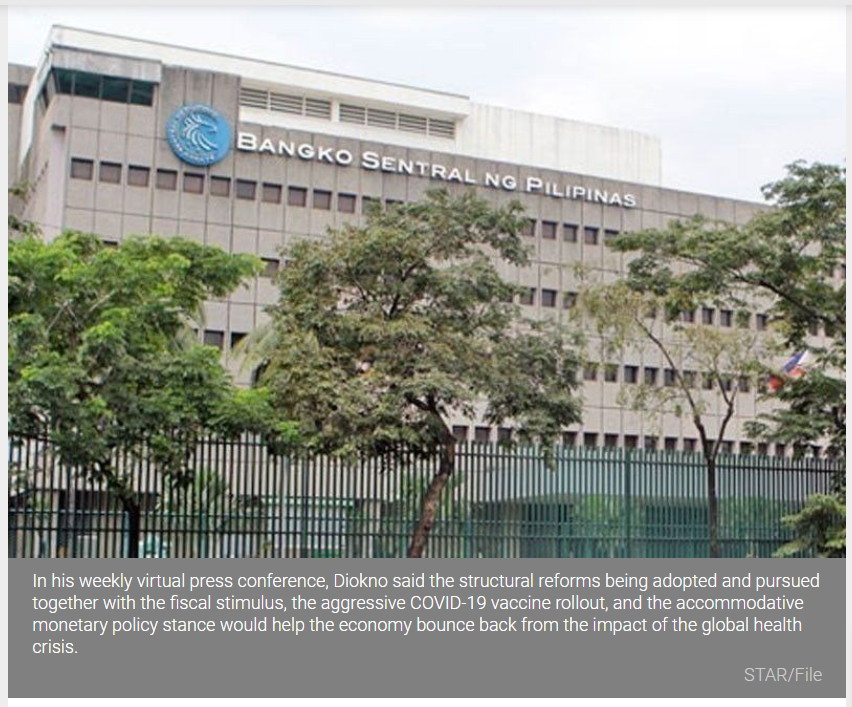BSP pushes deepening of Philippines capital market
MANILA, Philippines — The domestic economy’s recovery from the recession is expected to attract more foreign investors into the country, Bangko Sentral ng Pilipinas (BSP) Governor Benjamin Diokno said.
In his weekly virtual press conference, Diokno said the structural reforms being adopted and pursued together with the fiscal stimulus, the aggressive COVID-19 vaccine rollout, and the accommodative monetary policy stance would help the economy bounce back from the impact of the global health crisis.
“The medium and long term prospects of the Philippine economy are great. This assessment is shared by international credit rating agencies, with a projected strong recovery of our economy in 2021 and 2022. We are certain that the Philippines will continue to be viewed as a resilient high growth potential economy by foreign investors,” Diokno said.
The BSP chief noted the Philippines has managed to keep its investment grade credit rating and stable outlook amid a sea of downgrades issued by debt watchers during the height of the COVID-19 pandemic.
The central bank continues to work closely with the Securities and Exchange Commission (SEC), the Department of Finance (DOF) and the Bureau of the Treasury (BTr) on a roadmap to support the deepening of the capital markets.
The roadmap follows a calibrated, deliberate, and sequenced program consisting of immediate to medium-term action plans to ensure that urgent and important debt capital market initiatives are implemented without causing disruptions in the financial markets.
“Deep capital markets facilitate the efficient allocation of funds in the economy. By diversifying funding sources, they also support financial system resilience as stresses on a single creditor will not be propagated in the system,” Diokno said.
To support the implementation of the capital market roadmap, the BSP has released five policy issuances since 2020 including the amendments to the rules on securities custodianship and securities registry operations to promote investor access and protection as well as the amendments to rules on personal equity and retirement account (PERA) to shorten the turnaround time for account opening and reduce transaction costs.
The BSP also amended the rules on investment management activities (IMA) by reducing the minimum account opening amount to P100,000 from P1 million.
The regulator also issued circulars on the exclusion of debt securities held by market makers from the single borrowers limit (SBL) to improve market liquidity as well as to promote price transparency and help maintain a fair and orderly trading market.
Likewise, the BSP also issued circulars on expectations on London Inter-Bank Offered Rate (LIBOR) transition to ensure that Philippine banks are well positioned to adapt to changes in global financial markets, including the planned cessation of the benchmark used in a wide range of financial transactions.
“Aside from addressing funding gaps that cannot be fully met by bank credit, a developed capital market also promotes the availability of a broader range of financial products, and this can support financial inclusion,” Diokno said.
Source: https://www.philstar.com/business/2021/07/02/2109531/bsp-pushes-deepening-philippines-capital-market


 English
English




